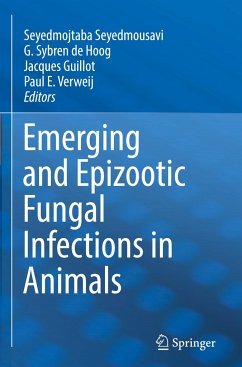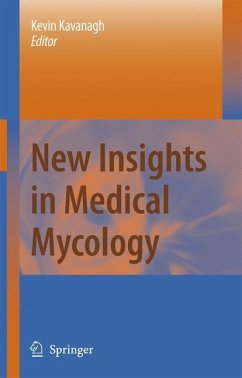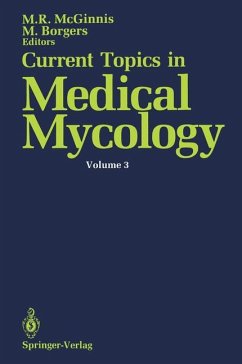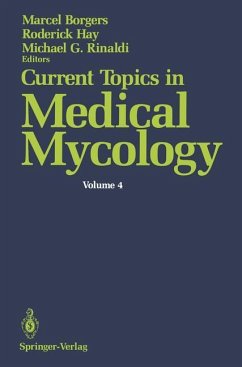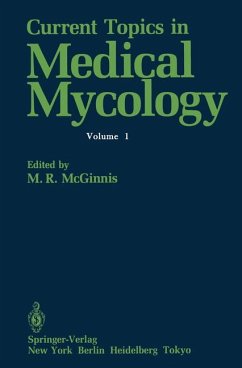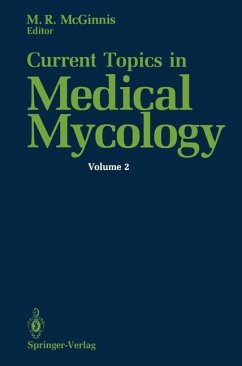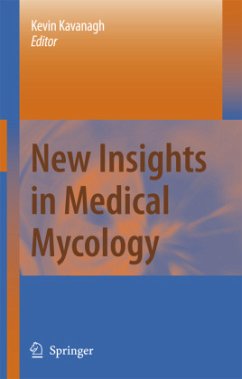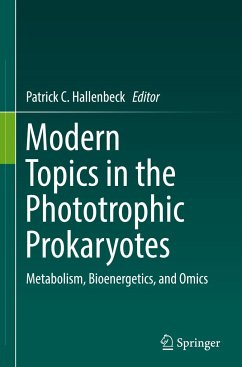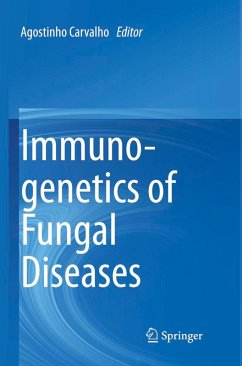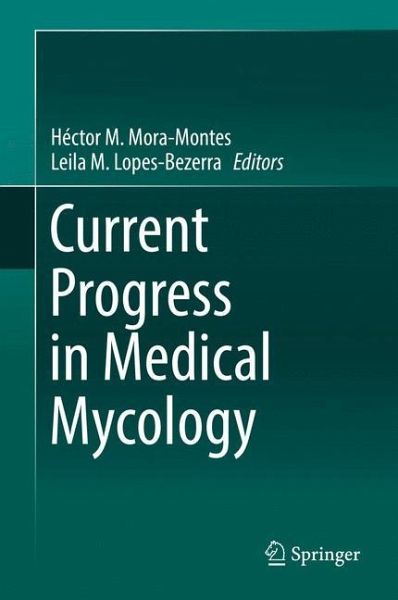
Current Progress in Medical Mycology

PAYBACK Punkte
57 °P sammeln!
Infections caused by fungi have recently attracted the attention of both clinicians and basic researchers given the heavy burden they represent for any health system. The mortality and morbidity rates associated to mycosis are progressively rising simply because some of these diseases are still neglected by health-care workers and due to the changing sensitivity to antifungal drugs displayed by these organisms. In this book, both researchers and clinicians working in the medical mycology field explore the most recent literature about specific mycosis; placing in one concise chapter thoroughly ...
Infections caused by fungi have recently attracted the attention of both clinicians and basic researchers given the heavy burden they represent for any health system. The mortality and morbidity rates associated to mycosis are progressively rising simply because some of these diseases are still neglected by health-care workers and due to the changing sensitivity to antifungal drugs displayed by these organisms. In this book, both researchers and clinicians working in the medical mycology field explore the most recent literature about specific mycosis; placing in one concise chapter thoroughly revisions of the current knowledge on virulence factors, recognition by immune cells, immunoevasion, epidemiology, new diagnosis trends and therapeutics. This book is recommended to researchers, physicians and students interested in medical mycology.





